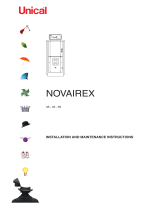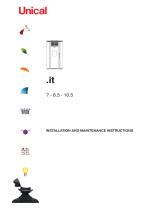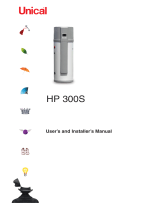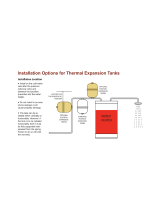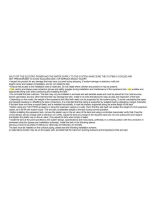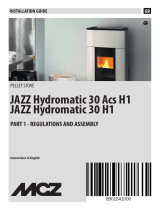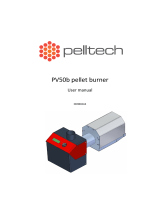Page is loading ...

PELLEXIA
INSTRUCTIONS ON INSTALLATION, USE AND MAINTENANCE

2
Attention: this manual contains instructions for the exclusive use of the pro-
fessionally qualified installer and/or maintenance technician in compliance
with current legislation.
The system manager is NOT authorised to service the boiler.
The manufacturer will not be held liable in case of damage to persons, animals
or objects resulting from failure to comply with the instructions contained in
the manuals supplied with the boiler.

3
1 GENERAL INFORMATION ................................................................................................................................................................................5
1.1 General warnings ......................................................................................................................................................................................... 5
1.2 Symbols used in the manual ........................................................................................................................................................................6
1.3 Appropriate use of appliance ....................................................................................................................................................................... 6
1.4 Information for system manager ..................................................................................................................................................................6
1.5 Safety warnings ........................................................................................................................................................................................... 7
1.6 Technical data plate ...................................................................................................................................................................................... 8
General informationTechnical featuresInstallation instructionsMaintenance instructions
4 INSPECTION AND MAINTENANCE ................................................................................................................................................................49
Inspection and maintenance instructions ........................................................................................................................................................... 49
Maintenance of the body ................................................................................................................................................................................... 50
Cleaning and routine maintenance .................................................................................................................................................................... 50
Non-routine maintenance .................................................................................................................................................................................. 50
Maintenance operations ....................................................................................................................................................................................51
3 INSTALLATION INSTRUCTIONS .................................................................................................................................................................... 15
3.1 General warnings .................................................................................................................................................................................... 15
3.2 Installation standards................................................................................................................................................................................ 15
3.3 Installation on old or retrofittable systems ............................................................................................................................................... 15
3.4 Packaging ................................................................................................................................................................................................ 16
3.5 Installation ............................................................................................................................................................................................... 17
3.6 Hydraulic connections .............................................................................................................................................................................. 18
3.7 Assembly instructions ............................................................................................................................................................................... 20
3.8 Connection to the flue............................................................................................................................................................................... 23
3.9 Electrical connections ............................................................................................................................................................................... 26
3.10 Filling the system ...................................................................................................................................................................................... 27
3.11 Hydraulic base diagrams ......................................................................................................................................................................... 28
3.12 Panel board .............................................................................................................................................................................................. 38
3.13 Panel board connections ......................................................................................................................................................................... 43
3.14 Boiler start-up ........................................................................................................................................................................................... 44
3.15 Troubleshooting ........................................................................................................................................................................................ 46
3.16 Alarms of the electronic control board ..................................................................................................................................................... 47
3.17 Audible alarms .......................................................................................................................................................................................... 48
2 TECHNICAL FEATURES AND DIMENSIONS ................................................................................................................................................... 9
2.1 Technical features ......................................................................................................................................................................................... 9
2.2 Hydraulic dimensions and connections ......................................................................................................................................................10
2.3 Technical data ............................................................................................................................................................................................. 11
2.4 Supplies ..................................................................................................................................................................................................... 12
2.5 Main components ....................................................................................................................................................................................... 12
2.6 General ....................................................................................................................................................................................................... 12

4
(This page has been intentionally left blank)

5
General information
1
GENERAL INFORMATION
1.1 - GENERAL WARNINGS
The instruction booklet is an integral and essential part of the
product and must be kept by the system manager.
Read the warnings contained in this instruction booklet carefully
as they provide important guidelines regarding installation, use
and maintenance safety.
Keep the booklet with care for further consultation.
Your appliance must be installed and serviced in compliance
with the standards in force according to the manufacturer
instructions, up to standard and by legally qualified and
certified personnel.
Systems for the production of domestic hot water MUST be
constructed entirely with materials that comply with M.D.
174/2004 (taps, pipes, fittings, etc.).
By professionally qualified personnel we mean: personnel
with specific technical skill in the field of heating system
components for civil use, domestic hot water production
and maintenance. Personnel must have the qualifications
provided for by current legislation.
Incorrect installation or improper maintenance can cause damage
to persons, animals or objects for which the manufacturer is not
responsible.
Before performing any cleaning or maintenance, disconnect the
appliance from the energy mains by acting on the switch of the
system and/or through the specific cut-off devices.
Do not obstruct the terminals of the ventilation ducts.
In case of failure and/or malfunctioning of the appliance, switch
it off and do not try to repair it or intervene on it directly. Contact
only personnel qualified in compliance with law.
Any product repairs must be performed solely by personnel
authorised by Unical, using original spare parts only. Failure
to comply with the above can compromise the safety of the
appliance and void the warranty.
To guarantee appliance efficiency and its correct operation,
yearly maintenance must be performed by qualified personnel.
Should you decide not to use the appliance, parts entailing
potential sources of hazard must be made safe.
Should the appliance be sold or transferred to a new owner or
if you move and leave the appliance, always make sure that the
instruction booklet accompanies it in order to be consulted by
the new owner and/or installer.
Only original accessories must be used for all appliances with
optionals or kits (including electric).
This appliance is intended solely for the use for which it was
expressly designed.
Any other use is to be considered improper and therefore
dangerous.

6
1.2 - SYMBOLS USED IN THE MANUAL
Pay special attention when reading this manual to the parts marked by the symbols:
1.3 - APPROPRIATE USE OF THE APPLIANCE
The PELLEXIA appliance has been built according to the current level of engineering and acknowledged
technical safety rules.
Nonetheless, if improperly used, dangers could arise for the safety and life of the user and other persons
or damage to the equipment or other objects.
The appliance is intended to operate in hot water recirculation heating systems.
Any other use must be considered improper.
UNICAL will not be held liable for any damage resulting from improper use.
Use according to the intended purposes also includes strict compliance with the instructions in this manual.
The user must be instructed concerning the use and operation of his heating system, in particular:
• Deliver these instructions to the user, as well as other documents concerning the appliance inserted in the envelope
inside the packaging. The user must keep this documentation safe for future consultation.
• Inform the user about the importance of the air vents and the flue gas exhaust system, highlighting their essential
features and the absolute prohibition of modifying them.
• Inform the user concerning controlling the system's water pressure as well as operations to restore it.
• Inform the user concerning correct temperature control, control units/thermostats and radiators for saving energy.
• Remember that the system must receive regular maintenance at least once a year and combustion analysis must
be performed every two years (as per national law).
• Should the appliance be sold or transferred to a new owner or if you move and leave the appliance, always make
sure that the instruction booklet accompanies it in order to be consulted by the new owner and/or installer.
The manufacturer will not be held liable in the event of damage to persons, animals or objects resulting from
failure to comply with the instructions contained in this manual.
1.4 - INFORMATION FOR SYSTEM MANAGER
NOTE!
Tips
for the user
ATTENTION!
Possible dangerous
situation for the product
and the environment
DANGER!
Serious danger for
personal safety and life

7
General information
1.5 - SAFETY WARNINGS
ATTENTION!
The appliance must be installed, adjusted and maintained by professionally qualified personnel, in com-
pliance with the standards and provisions in force. Incorrect installation can cause damage to persons,
animals and objects for which the manufacturer cannot be held responsible.
DANGER!
The boiler must be serviced or repaired by professionally qualified personnel, authorised by Unical. We
recommend stipulating a maintenance contract.
Insufficient or irregular maintenance can jeopardise the operating safety of the appliance and cause damage
to persons, animals and objects for which the manufacturer cannot be held responsible.
Modifying parts connected to appliance
Do not modify the following parts:
- the boiler
- the air, water and electricity supply lines
- the flue gas pipe, the safety valve and the exhaust pipe
- the construction parts which affect the operating safety of the appliance.
Attention!
To tighten or loosen the screwed fittings, use only appropriate fixed spanners.
Incompliant use and/or inappropriate tools can cause damage (e.g. water or gas leakage).
Explosive and easily flammable substances
Do not use or store explosive or easily flammable materials (e.g. petrol, paints, paper) in the room where the ap-
pliance is installed.
ATTENTION!
The appliance must not be used by people with reduced physical, sensory and mental abilities, without
experience and knowledge. These people must be previously trained and supervised during manoeuvre
operations. Children must be supervised so that they do not play with the appliance.

8
1.6 - TECHNICAL DATA PLATE
The technical data plate is adhesive and is included in the
document case; it must be applied by the installer on the
outside of the casing.
The serial number of the boiler is on the riveted plaque on
the front plate of the body (front right top side).

9
Technical features
2
TECHNICAL FEATURES
AND DIMENSIONS
2.1 - TECHNICAL FEATURES
The heat generator mod. PELLEXIA is a steel boiler operating
with wood pellets, equipped with a burner fed automatically by
a screw which withdraws the pellets from a tank alongside it,
with combustion chamber under negative pressure, suitable
for household heating.
You should ensure, therefore, a minimum draught in the flue of
15 Pa for model 34 and of 18 Pa for model 45.
The PELLEXIA boiler is complete with all the safety and control
devices required by relevant standards.
DESCRIPTION OF COMPONENTS:
• Steel boiler body with combustion chamber partially covered
with refractory material
• Air-blown pellet burner with automatic feeding
• Three smoke circuits, with the third equipped with turbolators
• Front doors with refractory coating and flame warning light
on the burner
• Rear smoke chamber with inspection door and ash removal
door
• Smoke extraction fan
• Safety heat exchanger
• Boiler body insulated with 60 mm thick mineral wool panel
• Powder painted sheet steel casing
• Large capacity pellet tank (230 kg/360 litres)
• Recirculation pump kit (optional).
PANEL BOARD COMPONENTS:
• Main switch with light indicating presence of power
• Safety thermostat for boiler overheating
• Main fuse
• Display.

10
BOILER DELIVERY
BOILER RETURN
RETURN PROBE FITTINGS
FITTING WITH SHEATH
FITTING FOR SHEATH
BOILER FLUE GAS OUTPUT
EXCHANGER FITTING
POS.
DESCRIPTION
130
PELLEXIA 45
BOILER DELIVERY
BOILER RETURN
RETURN PROBE FITTINGS
FITTING WITH SHEATH
FITTING FOR SHEATH
BOILER FLUE GAS OUTPUT
130
EXCHANGER FITTING
POS.
DESCRIPTION
2.2 - HYDRAULIC DIMENSIONS AND CONNECTIONS
PELLEXIA 34

11
Technical features
MODELS
PELLEXIA 34 PELLEXIA 45
NOMINAL MIN/MAX OUTPUT
(kW)
9.4/31.4 12.2/39.8
FURNACE MIN/MAX OUTPUT
(kW)
10.8/34.91
13.8/44.19
WATER SIDE PRESSURE DROPS (10K)*
WATER SIDE PRESSURE DROPS (20K)*
BOILER WATER CONTENT
EMPTY BOILER WEIGHT
MAXIMUM OUTPUT Qn/Qmin
OUTPUT IN STAND-BY
BOILER CLASS ACCORDING TO EN 303-5
[mbar]
10 10
33
[mbar]
(l)
(kg)
(W)
(W)
67
477
227/207
30
82
600
227/207
30
5 5
COMBUSTION AUTONOMY
PELLET STORAGE VOLUME
MAX OPERATING PRESSURE
(h)
21.4 16
360360
(l)
(bar)
3 3
NOISE LEVEL
(dB)
<- <-
MINIMUM DRAUGHT REQUIRED BY CHIMNEY
(Pa)
15 18
MIN. FLOW TEMPERATURE
(°C)
75 75
MAX. FLOW TEMPERATURE
(°C)
88 88
MIN. RETURN TEMPERATURE
(°C)
55 55
FLUE GAS TEMPERATURE Qn/Qmin
(°C)
158/97 166/102
NOMINAL LOADING FLUE GAS MASS FLOW RATE
(kg/s)
0.0176 0.0214
MAI/MAX EFFICIENCY
(%)
87/90 88.3/90.1
O2
(%)
5.69/12.4 5.8/10.9
CO2
(%)
13.37/6.89 13.9/8.6
2.3 - TECHNICAL DATA
CO 10%
(mg/Nm3)
116/459 182/476
CO 13%
(mg/Nm3)
84/334 132/346
NOx 10%
(mg/Nm3)
171/176 223/243
NOx 13%
(mg/Nm3)
124/128 162/177
Hc 10%
(mg/Nm3)
4/15 4/11
Hc 13%
(mg/Nm3)
3/11 3/8
Dust 10% (nominal output)
(mg/Nm3)
18 19
Dust 13% (nominal output)
(mg/Nm3)
13 14
FUEL CHARACTERISTICS
See par. 2.6
THERMAL STORAGE VOLUME
(Recommended)
(l)
> 680 > 900
MAX. SUPPLY WATER TEMPERATURE
SAFETY HEAT EXCHANGER
(°C)
15 15
SUPPLY WATER PRESSURE
SAFETY HEAT EXCHANGER
(bar)
2 2
BOILER OPERATION
WITH FAN WITH FAN
COMBUSTION CHAMBER OPERATION
UNDER NEGATIVE PRESSURE
UNDER NEGATIVE PRESSURE
OPERATION IN CONDENSATION
NO NO
DIMENSIONS OF THE LOADING DOOR
505x274505x274
(mm)
Pellet CONSUMPTION Qn/Qmin
9/2.87.1/2.14
(kg/h)
* Pressure drops for flow rate corresponding to a thermal variation of 15K.
** Values calculated based on the Law 10/91 for residential homes with a heat requirement of 30 kcal/hm³. The data shown is indicative.
The results in the table have been obtained using certified pellets based on the standards EN 14961-2.
PELLET STORAGE CAPACITY
230230
(kg)
MAX HEATABLE VOLUME **
1146900
(m
3
)

12
2.5 - MAIN COMPONENTS
1. Panel board
2. Boiler body insulation in mineral wool
3. Fan
4. Top cover
5. Boiler casing side
6. Pellet tank
7. Safety heat exchanger
8. Smoke chamber
2.6 - GENERAL
The main feature of the PELLEXIA heat stove is that of burning
natural fuel (pellets) obtained in an environmentally-friendly way
from wood industry waste (sawdust, powders). The sawdust
and powders coming from wood processing, after having been
appropriately cleaned and dried, are compacted at high pressure
to create pure wood cylinders: pellets.
The main features of the pellet are its low moisture content
(lower than 10%), its high density (> 600 kg/m
3
) as well as its
regularity and compactness providing to this type of fuel a high
Net Calorific Value.
2.4 - SUPPLY
standard
System expansion vessel (18 litres)
standard
Automatic release valve
standard
System safety valve (3 bar)
In order to provide PELLEXIA with a long lifespan, Unical advises
using certified pellets.
The pellets used to feed the boiler must have high quality features
such as, for example, those determined by the standard EN
14961-2. The following are some of their fundamental data.
9. Smoke chamber inspection door
11. Expansion vessel
12. Pellet feeding screw
13. Burner feeding hose
14. Pellet clogging sensor
15. Boiler top door
16. Burner
17. Boiler bottom door
18. Heat exchange fin with turbulators
19. Intermediate refractory stones
20. Ash collection pan
21. Base refractory stones
22. Furnace base insulation
23. Pellet fire prevention Klixon thermostat
M Heating system flow
R Heating system return

13
Compliance with these two simple rules provides better combus-
tion efficiency and conserves the moving mechanical parts of the
appliance.
If you plan on not using the PELLEXIA boiler
for a long period of time (seven days or more),
you should remove any residual fuel in the tank
which, if left inside, could gather moisture and
cause the product to malfunction.
A high moisture content in the pellet can cause
it to break up into powder generating a greater
accumulation of residue in the brazier and a
blocking of the fuel feed system (screw).
The pellets, as foreseen by current Italian leg-
islation governing commodity features of fuels
(DPCM 2.10.1995), must be produced exclusive-
ly with untreated wood sawdust without other
materials added.
It is absolutely forbidden to use any solid or
liquid fuel other than pellets to feed PELLEX-
IA.
It is advisable to use certified pellets to ensure
optimal use of PELLEXIA.
The use of poor quality pellets can cause PELLEX-
IA malfunctioning and shall terminate the warranty.
Storage and handling of pellets are important operations to be
performed with care:
- The fuel must be stored in a dry place which is not cold;
- Pellets must be moved in such a way to avoid excessive crushing
into fine powders.
Technical features
Parameter
Diameter (D)
Length (L)
Water content (M)
Ashes (A)
Mechanical durability (DU)
Fine particles (< 3.15 mm)
Additives
Lower Calorific Value (Q)
Bulk density (BD)
Nitrogen (N)
Sulphur (S)
Chlorine (Cl)
Arsenic (As)
Cadmium (Cd)
Chromium (Cr)
Copper (Cu)
Lead (Pb)
Mercury (Hg)
Nickel (Ni)
Zinc (Zn)
Melting point of the ashes (DT)
4
M.U.
mm
mm
%us
2
%dm
2
%us
%us
%dm
MJ/kg us
kg/m
3
%dm
%dm
%dm
%dm
%dm
%dm
mg/kg
mg/kg
mg/kg
mg/kg
mg/kg
°C
EN plus-A1 EN plus-A2
6 (± 1)
31.5 ≤ L ≤ 40
1
≤ 10 ≤ 10
≤ 0.7 ≤ 1.5
≥ 97.5 ≥ 97.5
< 1 < 1
≤ 2 ≤ 2
16.5 ≤ Q ≤ 19 16.3 ≤ Q ≤ 19
≥ 600 ≥ 600
≤ 0.3 ≤ 0.5
≤ 0.03 ≤ 0.03
≤ 0.02 ≤ 0.02
< 1 < 1
≤ 0.5 ≤ 0.5
≤ 10 ≤ 10
≤ 10 ≤ 10
≤ 10 ≤ 10
≤ 10 ≤ 10
≤ 10 ≤ 10
≤ 100 ≤ 100
≥ 1200 ≥ 1100
1) Maximum 1% of pellets with length greater than 40 mm. Maximum length 45 mm.
2) us = unaltered state, dm = dry matter
3) Determination at 550°C
4) In this case, the ashes must be produced at 815°C

14
(This page has been intentionally left blank)

15
Installation instructions
3
INSTRUCTIONS FOR
INSTALLATION
3.1 - GENERAL WARNINGS
ATTENTION!
This boiler is intended solely for the use
for which it was expressly designed. Any
other use is to be considered improper and
therefore dangerous.
This boiler heats water at a temperature
lower than the atmospheric pressure boiling
temperature.
ATTENTION!
The appliances are designed to be installed
inside suitable rooms or technical spaces
only. The appliances cannot be installed or
operate outdoors. Outdoor installation can
cause malfunctioning and be dangerous.
Choose specifically designed appliances for
outdoor installation.
Before connecting the boiler, have professionally
qualified personnel:
a) Thoroughly wash all the piping of the system
to remove any residue or impurities which
could jeopardise proper operation of the
boiler;
b) Check that the chimney/flue has an appropriate
draught, without any bottlenecks, and that no
exhausts from other appliances are inserted,
unless the flue has been implemented to
accommodate several utilities according to
specific standards and prescriptions in force.
Only after this check can the fitting between
the boiler and chimney/flue be mounted;
ATTENTION!
The appliance must be installed by a qualified
technician with the technical-professional
requirements according to law 37/08 which,
under his own responsibility, guarantees
compliance with the standards according to
good practice rules.
The boiler must be connected to a central heating
system and/or domestic hot water production
network compatible with its efficiency and output.
3.2 - INSTALLATION STANDARDS
It must be installed by a professionally qualified technician, who
shall take the responsibility of observing all local and/or
national laws published in the official journal, as well as
applicable technical standards.
3.3 - INSTALLATION ON
OLD OR RETROFITTABLE SYSTEMS
Before installing this appliance on old systems, check that:
- The flue is able to withstand the temperature generated by
the combustion products, has been measured and designed
according to the regulations in force, is airtight and insulated,
and does not feature obstructions or constrictions.
- The flue has a device for releasing condensation.
- The electrical system has been set up by a qualified
technician in compliance with the rules in force.
- The rate, head and direction of the flow of the recirculation
pumps are appropriate.
- The expansion vessel(s) can fully absorb dilation of the
fluid in the system.
- The expansion vessels can fully absorb dilation of the fluid
in the system.
- The system has been cleaned and cleared of all sludge
and scale, has been vented, and all its seals have been
checked.
- There is a water supply treatment/recirculation system.

16
3.4 - PACKAGING
The PELLEXIA boiler is delivered already encased on a pallet
together with other boxes containing the pellet tank, the panel
board, and the pellet feeding screw, all protected with heat
shrink plastic film. The boxes containing the panel board are
placed inside the furnace, as are the accessories for assembly
and for cleaning.
After having removed all packaging, make sure that
the supply is complete and undamaged.
If in doubt, do not use the appliance and contact
the supplier.
To handle the boiler and to remove the pallet
below, fasten the upper hook intended for this
purpose using appropriate lifting systems (below
the casing cover).
The packaging elements (cardboard boxes,
straps, plastic bags, etc.) must be kept out of
the reach of children as they are potential
sources of danger.
Unical will not be held liable for damage to persons, animals
or objects due to failure to comply with the instruction above.
The document envelope, inserted in the furnace, contains:
- Hydraulic test certificate (PELLEXIA 45)
- Heating system booklet (PELLEXIA 34)
- Heating system booklet (PELLEXIA 45)
- Installation, maintenance and operating instruction booklets
- Warranty
- Local ventilation requirements adhesive label
If the boiler is stored for long periods, it should be
adequately protected.
Description of packs:
1. Boiler body
2. Packaging containing pellet tank painted parts
3. Packaging containing pellet tank galvanized parts
4. Pellet feeding screw
5. Panel board (supplied inside the furnace)

17
Installation instructions
3.6 - INSTALLATION
PELLEXIA is a heat generator which withdraws the combustion
air required for the combustion process directly from the
environment in which it is installed.
For this reason, and above all for the safety of the persons using
PELLEXIA, it must be installed in a ventilated area so that a
continuous flow of combustion air is always guaranteed.
It is therefore essential to make air vents linked with the outside
which, in compliance with that indicated by Standard UNI 10683,
have the following features:
1. A width of 100 cm or more
2
, ensuring at least that pressure
in the installation area does not exceed 4 Pa;
2. Be made close to the floor;
3. Be appropriately protected by metallic mesh or grille so that
the minimum air passage cross-section is not reduced;
4. Be positioned in such a way that it cannot be obstructed.
The correct air influx can also be guaranteed
by using openings towards an adjacent room
as long as that room is provided with direct
ventilation and that it is not a room with a fire
risk such as depots, garages or storerooms
as regulated by standard UNI 10683.
PELLEXIA should be installed in rooms without natural draught
equipment or appliances which can create a vacuum in the room
in relation to the outside environment and therefore hinder the
draught of the flue gas exhaust system (UNI 10683).
To make it easier to clean, there must be a clearance space
in front of the heat stove no less than the length of the stove
itself. You must at least make sure that the door can open 90°
unobstructed.
PELLEXIA can be placed directly on the floor as it is equipped
with a self-supporting frame.
When inspecting compatibility of the heating
system, you should make sure that the support
surface (floor) has a support capacity (kg)
suitable to bear the weight of the product. If it is
not adequate, suitable safety measures should
be taken (e.g. load distribution plate).
Furthermore, should the floor be made of combustible material
(such as parquet) it should be protected by placing a sheet of
fireproof material underneath PELLEXIA which is sufficiently
wider than the base.
When installation has been performed, the boiler must be
horizontal and stable, in order to reduce vibrations and noise.
However clearance space must be left behind the boiler and on
both sides to allow the casing to be opened for maintenance.
There must also be sufficient clearance for loading the pellet tank.
Do not approach or touch the outer surfaces of the
combustion chamber with flammable material as it can reach
high temperatures following continuous use.

18
3.6.1 - CONNECTION TO THE
SAFETY HEAT EXCHANGER
Solid fuel fired boilers must be installed with
the safety devices foreseen by the relevant
laws in force.
For this purpose PELLEXIA boilers are
equipped with a safety exchanger.
A thermal discharge valve must be installed on the safety heat
exchanger by the installation technician, with a control bulb set
up inside the sheath located on the rear side of the PELLEXIA
boiler.
Attention!
The input or output can be inverted as long as
the valve is installed on the cold water intake.
Provide a drain pipe with a funnel and a siphon leading to an
appropriate drainage at the heat exchanger outlet. This drainage
must be controlled on sight.
Attention!
If this precaution is not taken, triggering of the
thermal discharge valve can cause damage
to persons, animals and objects for which
the manufacturer cannot be held responsible.
DRAIN
2
POWER SUPPLY
1
DRAIN
POWER
SUPPLY
INCORRECT
INSTALLATION
CORRECT
INSTALLATION
DRAIN
POWER SUPPLY
3.7 - HYDRAULIC CONNECTIONS
ATTENTION!
Before connecting the boiler to the heating
system, thoroughly clean the piping with an
appropriate product compliant with UNI-CTI
8065, in order to eliminate metallic residue
from processing and welding, oil and grease
which could be present and which, reaching
the boiler, could alter its functioning.
Attention!
The fittings of the boiler must not take
the weight of the connecting pipes of the
system; suitable supporting devices should
be installed to do this.
The dimensions of the supply and return pipes for each boiler
model are given in the DIMENSIONS table.
Check that the system is fitted with a sufficient number of vent
valves.

19
Installation instructions
3.6.2 - RECIRCULATION PUMP
For correct generator operation, a recirculation pump must
be installed in the boiler.
The recirculation pump, supplied in an optional kit, must be
connected as indicated in the figure.
If it is not installed, besides limiting the boiler's lifespan, it
will invalidate the warranty.
ATTENTION!
The hardness of the mains water supply conditions the
boiler's lifespan.
Depending on the hardness of the mains water supply,
the possibility of installing appropriate domestic water
softeners has to be taken into consideration in compliance
with DM n° 443 of 21/12/90.
It is always recommended to treat water with a
hardness greater than 15°f.

20
3.7 - ASSEMBLY INSTRUCTIONS
IMPORTANT!
Before beginning the casing work, perform the hydraulic testing of the boiler and of the plant connected to it.
When installing the boiler, consider the size of the pellet tank on the left side (refer to the dimensions on page 10)
and leave sufficient space for loading pellets in this tank.
As an indication, there should be a clearance of no less than 1000 mm between the boiler and any wall on
the left side for standing next to the tank and to fill it easily.
- Fit on the base the side panel (pos. 7) and secure it to the
panels (pos. 2 and 6) as well as to the base itself.
- Assemble the rear panel (pos. 8) making sure that the profile
(pos. B) overlaps the panel (pos. 6).
- Attach the two triangular sheets (pos. 16 and 17) to panels 2
and 6.
- Place the grate pos. 9 above the tank.
- Hook the upper panel pos. 10 to the 2 sides of the tank.
- Mount the central cover pos. 11 with the the two hinges
provided and secure the opening handle.
- The front panel pos. 14 must be mounted after the electric
connections of the screw motor, level and pellet clogging
sensors have been done.
Pellet tank assembly
Preliminary operation:
Fasten the adhesive sealing supplied in the accessory box as
indicated in details “A” (N.B. on both sides).
- Fit the base pos. 1 below the side casing of the boiler; if
needed, the side casing can be lifted slightly.
Fasten the base to the side casing using the washers and
nuts supplied in the accessory box.
- Assemble “on the ground” the parts pos. 2, 3, and 4 with the
screw unit.
While assembling, verify the correct positioning of the sealing
gasket (detail A).
- Fasten the panel (pos. 2) to the side boiler casing.
- Fasten the panel (pos. 6) to the side boiler casing.
/
